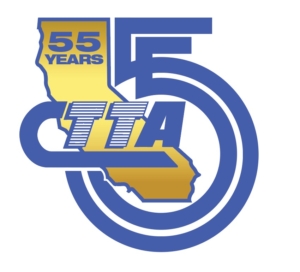CHP ADOPTS CHANGES TO HOURS-OF-SERVICE REGS FOR CALIFORNIA TOW TRUCK OPERATORS
Sacramento, CA • January 8, 2020
After years of working closely with the California Highway Patrol (CHP) on the changes, the California Tow Truck Association (CTTA) is proud to report that revisions to California’s hours-of-service regulations for California tow truck operators have been finalized and will take effect on April 1, 2020. Given the unworkability of existing hours-of-service rules for the tow industry – whose workload is unpredictable by nature – CTTA’s Towing Regulatory Oversight Council (T-ROC) worked exhaustively to help craft amendments that address the unique working conditions of
the tow industry without jeopardizing motorist safety. The T-ROC brought these proposed changes to the CTTA Board for approval before the CHP ultimately completed the lengthy
legal process required to enact regulatory amendments.
Specific to “tow truck operators,” the following provisions were added to California’s hours-of service regulations found in Title 13, California Code of Regulations, section 1212, paragraph (q):
- Tow truck drivers will be allowed to use the 16 hour “on-duty” time non-consecutively, similar to farm products drivers. It will not be limited to a 24-hour period, rather whenever a tow truck driver first hits 12 hours of non-consecutive driving time or 16 hours of nonconsecutive on-duty time, he or she would need to take 10 hours off-duty. Previously the “on-duty” time kept running once a driver began his or her shift. This increased flexibility will help address the unpredictable nature of the tow industry.
- The exemption will apply when driving all light- and heavy-duty tow trucks “as defined in Section 615(a) CVC, equipped with at least one permanently mounted and operational boom, winch, under-lift device, or other equipment designed, used, or maintained for the purpose of lifting, carrying, securing or towing a disabled vehicle.” It will also not have any geographic or line of business limitations – it will apply equally across the industry, regardless of how the tow was initiated or by whom. Equal application to all towers was critical for the T-ROC. It will not apply when driving a Haz Mat truck, or truck-tractor, any motor truck used to tow a trailer (defined in section 34500(e)), or any other vehicle not equipped as described above.
- It includes the following two “tracking” requirements:
- Drivers using this exception shall complete a driver’s record of duty status pursuant to section 1213 for each 24 hour period while using the exception and for the seven 24-hour periods immediately following the use of the exception.
- The employing motor carrier of any driver shall report all incidents to the CHP within 15 calendar days. An “incident” would include any injury to a driver, public, emergency response personnel, or other party at the scene, directly attributable to the driver that results in lost time beyond the employee’s work shift or medical treatment beyond first aid, or damage to any property exceeding $500.
The final adopted regulatory text is available on the CHP’s Regulatory Actions website at: https://www.chp.ca.gov/news-alerts/regulatory-actions
CTTA thanks the T-ROC for its tireless dedication to this issue. Addressing hours-of-service workability issues was a priority for the T-ROC from day one of its inception in 2013. While not a quick, nor easy process, it demonstrates the tow industry’s ability to progress when united, thoughtful, and persistent. Please direct any questions or comments to ctta@ctta.com
###
CLICK HERE to download a .pdf of this release
